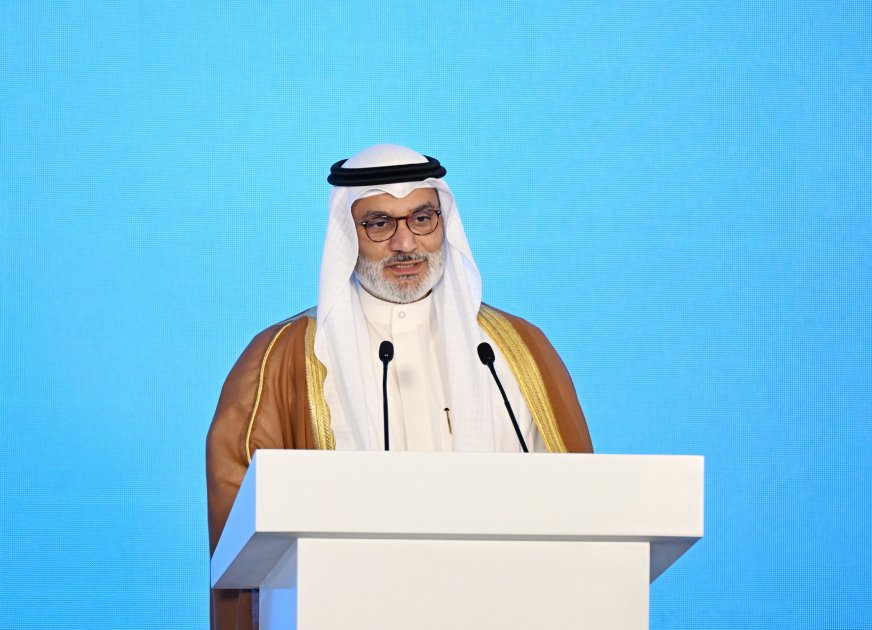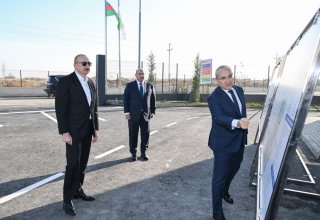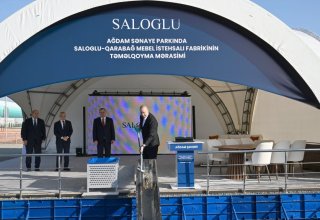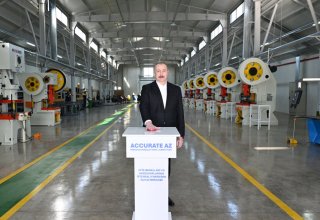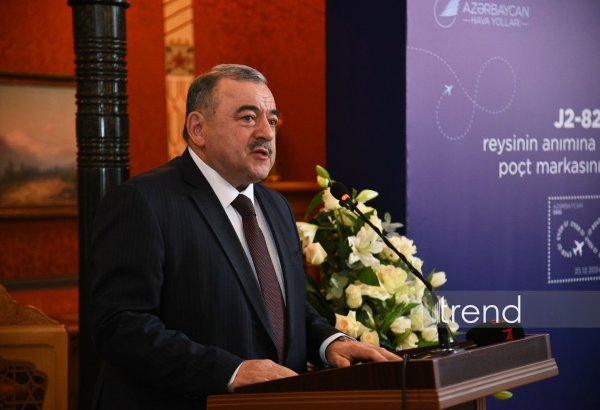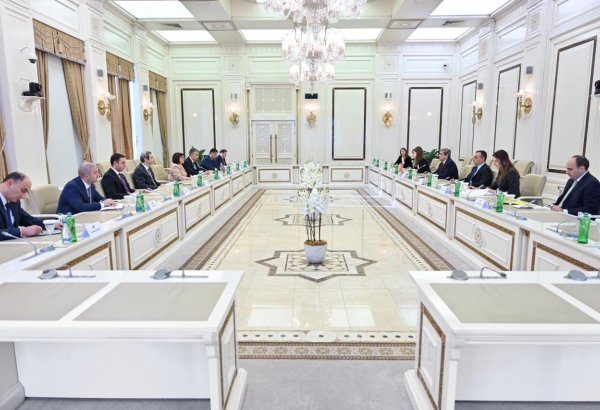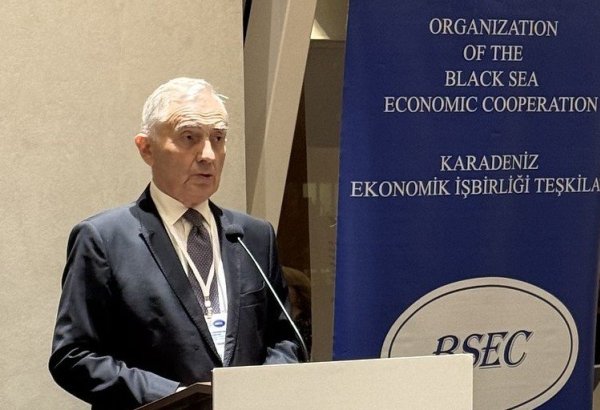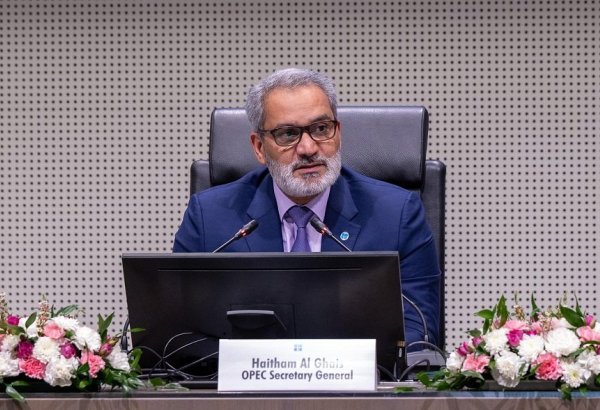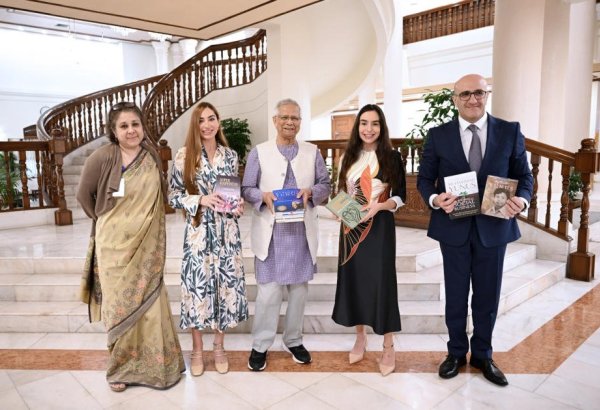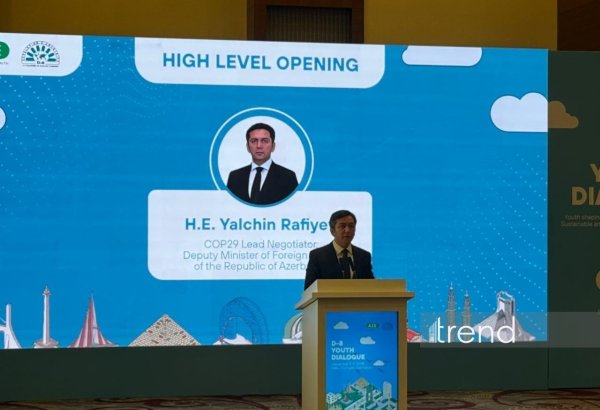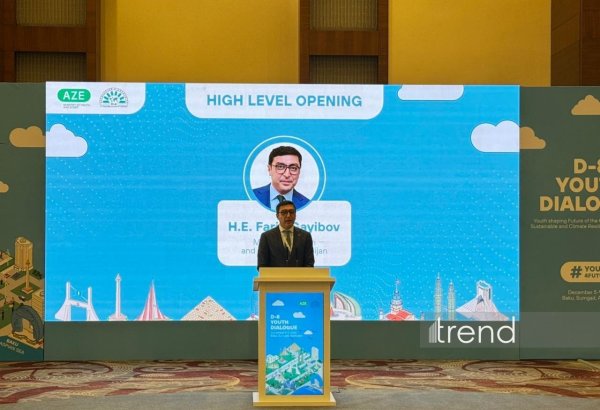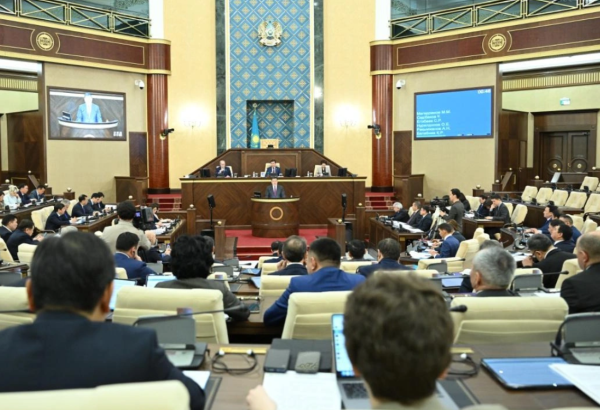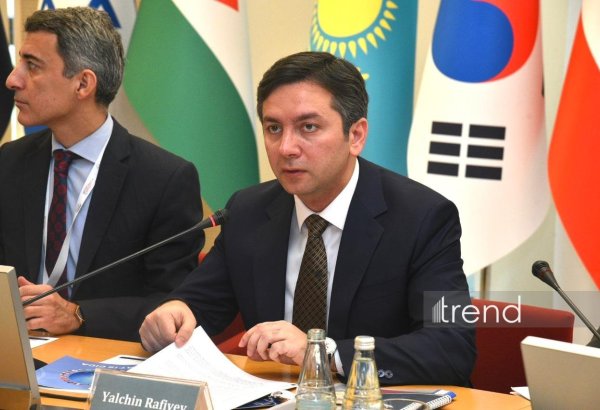BAKU, Azerbaijan, September 10. OPEC fully supports Azerbaijan’s collaborative spirit for COP29, Haitham Al Ghais, OPEC Secretary General, said in an exclusive interview with TurkicWorld
"Azerbaijan has been a valued partner in the Declaration of Cooperation (DoC) between OPEC and non-OPEC producers since its inception at the start of 2017. The country is not only a key player in helping to foster oil market stability and maintain energy security, but also in the important goal of helping reduce emissions.
Tackling this combination of intertwined challenges is increasingly vital, as by 2045, global primary energy demand is projected to increase by 23% and the global population increase by 1.5 billion people. Additionally, about 500 million people are expected to move into cities worldwide by 2030, equating to more than 225 new cities the size of Baku," he said.
Al Ghais highlighted that Azerbaijan’s pragmatic and inclusive approach to COP29 exemplifies the importance of striking a balance between reducing emissions and delivering the affordable energy products and services that people need.
"We should remember that billions of people still lack access to modern energy services. For these people, their energy future is not about reducing emissions (they are not contributing any), deciding on the purchase of an electric vehicle, or reflecting over the costs and benefits of energy sources. Instead, it is about achieving the energy basics that others take for granted, such as being able to turn on a light, cook on a clean stove or have motorized transport to move to and from work or school.
OPEC fully supports Azerbaijan’s collaborative spirit for COP29, and OPEC backs just, orderly and stable energy pathways that have both energy security and emissions reductions at their heart. National circumstances, and common but differentiated responsibilities, should be borne in mind at all times too, as well as the provision of adequate climate financing to the developing world without further delay," added OPEC secretary general.
Haitham Al Ghais noted that in the lead up to COP29, the OPEC Secretariat will be hosting a technical workshop and a climate change coordination meeting in mid-October for Member Countries and partners in the Declaration of Cooperation (DoC).
He pointed out that the OPEC-Azerbaijan relationship is an extremely positive one.
"In June of this year I was at Baku Energy Week and it was an honour to be in the presence of the President of Azerbaijan Ilham Aliyev, and share a platform with Parviz Shahbazov, Minister of Energy of Azerbaijan.
Al Ghais highlighted that President Ilham Aliyev has been a strong advocate of the DoC and it was heartening to recently hear the President state that abundant hydrocarbons were a "gift from God" and that "as the head of a country rich in fossil fuels, of course, I will defend the right of these countries to continue investments and production because the world needs it."
"These are extremely important words, and these precious resources are indeed a "gift from God". They have brought tremendous benefits to the world. Oil and its associated products help power cars, ships and airplanes, light and heat homes, and enables the development of plastics, pharmaceuticals and medical supplies. This list could go on … and underscores how vital oil is to our everyday lives," he said.
OPEC secretary general went on to add that the high-level energy dialogue held in Vienna in May with Mukhtar Babayev, Minister of Ecology and Natural Resources of Azerbaijan, and President-Designate for COP 29, can be viewed as a vital stop on the road to COP29.
"It was clear from our engagement that Azerbaijan seeks the views of all stakeholders, including those of the oil industry, allowing every country to chart its own path based on national circumstances, and taking into account the principles of equity, and common but differentiated responsibilities and respective capabilities. In the lead up to COP29, the OPEC Secretariat will also be hosting a technical workshop and a climate change coordination meeting in mid-October for Member Countries and our partners in the DoC," said Al Ghais.
He expressed hope that the recent meeting with Azerbaijan is the first of many high-level energy dialogues, ones that fit well with the DoC, and the broader Charter of Cooperation, a voluntary framework for dialogue and a platform for multilateralism on energy issues.
"In this regard, we hope to welcome the COP29 President and his team back to Vienna before COP29," added OPEC secretary general.
Efforts of OPEC members to tackle climate change
Balancing sustainable development with the need to address climate change is an important question, and one that OPEC Member Countries are embracing, said Haitham Al Ghais.
"We need to promote all energies and all technologies, that can help deliver energy security, energy availability and reduce emissions. In this regard, we should remember that the oil industry, renewables and efforts to reduce emissions are not as at odds with each other as many people think. The reality is that hydrocarbons also power the transportation and construction industries necessary for renewable infrastructure development. For example, depending on their size, wind turbines require between 200 and 1,400 litres of lubricants for the smooth operation of their gearboxes, bearings, hydraulic systems and transformers, while resins produced with ethylene are also needed to waterproof the turbines themselves. Without petrochemical-based products, the mass production of solar panels would be similarly impossible, he said.
Al Ghais noted that moreover, oil and its derivatives provide crucial fiscal support for numerous countries, many of whom rely on revenues from the oil industry to fund government budgets, support economic activities, diversify economies and mitigate against any potential adverse socio-economic impacts of transitioning.
"It is why OPEC Member Countries are investing in both hydrocarbons and renewables, and why at the same time, these countries, and the oil industry, in general, are actively working to reduce emissions through operational efficiencies and advanced technologies. This includes optimizing extraction and refining processes – including excellent reservoir management practices – and engaging in flare minimization and reducing methane leaks, as evidenced by around 50 major oil and gas producers at COP28 agreeing to curb methane emissions to near-zero by 2030. The industry is also scaling up carbon capture utilization and storage, and developing clean hydrogen technologies, direct air capture, and carbon dioxide removal, all within the concept of the circular carbon economy," noted OPEC secretary general.
He highlighted that additionally, it is important to reference the vital work being undertaken by OPEC’s sister organization, the OPEC Fund for International Development.
"The OPEC Fund was established by the Member Countries of OPEC in 1976 with a distinct purpose: to drive development, strengthen communities and empower people. It is focused on financing projects that meet essential sustainable development needs, such as food, energy, infrastructure, employment, clean water and sanitation, healthcare and education. To date, the OPEC Fund has committed about US$27 billion to development projects in over 125 countries, all in the developing world," Al Ghais added.
He believes that realistic approaches needed to tackle emissions, HE Haitham Al Ghais, OPEC Secretary General, said in an exclusive interview with Trend.
"Our Member Countries are present at all COP meetings. The OPEC Secretariat provides support to its Member Countries in climate change negotiations, but it is for individual Member Countries to provide their nationally determined contributions (NDCs) as part of the Paris Agreement," he said.
Al Ghais pointed out that additionally, it is important to take note of the global stocktake, the first one having taken place last year at COP28 in the UAE.
"This is also part of the Paris Agreement and allows Parties to periodically take stock of its implementation to assess the collective progress towards achieving the purpose of the Agreement and its long-term goals.
OPEC Member Countries are taking a proactive approach to their climate commitments. In this regard, we need nuanced and realistic approaches to tackle emissions; ones that also enable economic growth, help eradicate energy poverty, and increase resilience at the same time," added OPEC secretary general.
Future energy pathways
Future energy pathways need to take on board the needs of people in every corner of the world, said Haitham Al Ghais.
"It is clear there is ‘no one-size-fits-all' solution. It is not about charting a single pathway, there are multiple pathways, each with solutions that fit individual nations and peoples. We need to fully appreciate the different circumstances of nations and peoples across the world," he said.
Al Ghais noted that it is why OPEC Member Countries are so serious about the world taking the best and most just future energy pathways.
"Pathways that provide for energy security, do no impede socio-economic development, enable the necessary investment in all energies and all technologies, and help reduce emissions. Future energy pathways need to take on board the needs of people in every corner of the world and follow an all-energies and all-technologies approach. We should not be dismissing any energy, or any technology; we will need them all," OPEC secretary general added.








